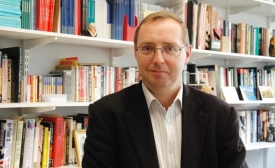soft power
China understands Indian sensitivity in Nepal and counsels Kathmandu "to be friendly with India without being hostile to China". As a country that has enduring strategic importance to its neighbors, the real test of Nepal's foreign policy is to maintain balanced diplomacy with full recognition of ground realities...
Engaging in cultural exchange and trade with North Korea would be more productive than the US's existing failed policy. [...] A good, very small start toward for the long-term goal of undermining the regime rather than pursuing a short-term goal of trying to talk them off nuclear weapons would be to make cultural exchanges between the two countries.
The soft power roadmap for what is needed is relatively clear. Seizing the moment requires the United States and international partners to give much higher priority to activities such as public diplomacy, sustainable development assistance, and exchange programmes.
South Korea’s capital Seoul is bustling with a huge group of Chinese tourists, reaching almost 10,000 people, on their company-sponsored incentive trip as a reward for great performance. On Friday evening, about 4,000 Chinese visitors enjoyed Korea’s signature herbal chicken soup, party after sightseeing and shopping in and out of Seoul.
Soccer could provide a vehicle to improve China’s soft power and succeed where previous attempts have struggled. [...] There are two standout advantages soccer has over other mediums of soft power for China. One is football’s global resonance and accessibility. [...] Another plus is that relative to the arts or education, there is less opportunity for the product to be diminished due to interference from the state as soccer does not actively communicate a message beyond the realm of sport.

A regional focus on East Asia, and forthcoming research on Taiwain's public diplomacy, specifically PD efforts in the non-governmental sector.
There is a growing anxiety among some observers in the EU that a disinformation strategy pursued by the Russian government since the Ukraine crisis might fragment and disintegrate the Union. It is claimed that Russia’s use of targeted disinformation is seeking to influence public opinion within the member states with the aim of paralysing decision-making processes at the EU level.
Public diplomacy scholar Joseph Nye discusses China's soft power assets and impact abroad.







